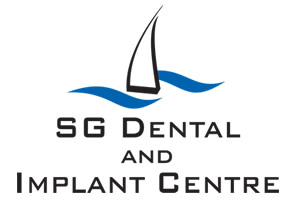Never Share A Toothbrush
Some things should belong to you alone; a toothbrush is one of them!
Hopefully, all patients of Mike Allen’s Dental Practice will own a toothbrush. Whether young or old, our daily brushing, both morning and night is the very bedrock of how we look after our teeth and gums. We will look a little later at what you can do when sharing a toothbrush seems unavoidable, but first, we want to discuss why our Burton patients should avoid sharing their toothbrush with others, however close they are.
Transmission of bacteria and viruses
The most obvious problem of sharing a toothbrush is that we can easily pass on infections and viruses that are carried in the saliva. There may also be minute traces of blood on the toothbrush if the owner has gum disease. This can increase the risk of transmission of not only gingivitis and periodontitis but also other blood borne diseases which could be potentially very serious.
It probably goes without saying that this means that you should never share your toothbrush with a total stranger, but also, we believe, not even with those closest to you. Even if you are confident about your partner’s oral health habits; like most of us, they will come into contact with others at work or on public transport, and there is sometimes no way of knowing if they are coming down with a viral infection. To be on the safe side, don’t share your toothbrush with anyone at all.
Emergency toothbrushes
The above is all very well, you might say, but there may be times when there appears to be little option than to share your toothbrush with a family member. An example might be if you have forgotten to pack a toothbrush for your holiday and by the time you arrive at your destination all shops are closed so you can’t buy one until the next morning. In this case, it is preferable to not clean your teeth than to borrow a toothbrush. There are, however, ways that you can at least partially clean your teeth without using a brush. It should be stressed that these are only temporary measures and long term use will still lead to decay and/or gum disease, so do revert to using a brush as soon as you can.
The first step that we suggest you take, presuming that if you have forgotten your brush, you are also likely to have forgotten your dental floss and mouthwash, is to swill water vigorously around your mouth and spit it out. This will help to remove some of the sugars and bacteria that have become trapped between your teeth as well as any food that remains too. This is an easy step to take and even if you do nothing else, it will help at least a little.
You can also temporarily replace the role of the toothbrush using the following methods:
Paper towel – Use a dry and clean paper towel wrapped over a finger to ‘brush’ your teeth. Do so using toothpaste, presuming that you haven’t also forgotten this. If you have though, still use the paper towel to brush. Make sure to clean around the gums as well as your teeth.
Clean cloth/handkerchief – Although lacking the abrasiveness of a paper towel; using the same method with a clean cloth will achieve a similar result. Again, use toothpaste if you have some available.
Finger brushing – If all else fails, you can use your finger to help clean your teeth and gums a little. Do make sure to wash your hands well first so that you don’t increase the risk of infection. Again, use toothpaste if available.
In the above situations, if you have managed to use toothpaste, then spit after brushing but do not rinse as the residual toothpaste will continue to help protect the teeth and gums. If you have not used toothpaste, then rinse and spit afterwards as well to help remove tiny particles of food that may remain.
Sugar free gum – If you have some sugar free gum with you, this is a good way of helping to remove debris from your mouth. The stickiness of the gum will help to attract food and bacteria and help to keep your mouth clean too.
So if you have travelled and forgotten your toothbrush, we recommend getting up early the next day and buying yourself a new one before your morning brush if possible. If you use an electric brush at home but don’t want to go to the expense of buying another one, a manual one will be fine for a short period as long as you brush well. You can revert to your electric toothbrush once you have returned home.
To ensure that your teeth and gums remain healthy, regular dental assessments are essential. So to make an appointment to see a dentist at Mike Allen’s Dental Practice in Burton, please call us on 01283 845345.
